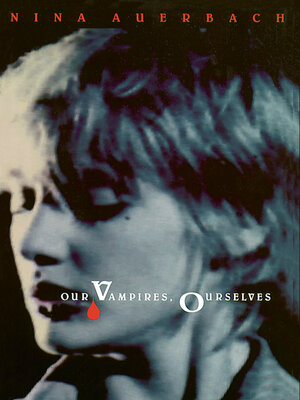
Sign up to save your library
With an OverDrive account, you can save your favorite libraries for at-a-glance information about availability. Find out more about OverDrive accounts.
Find this title in Libby, the library reading app by OverDrive.



Search for a digital library with this title
Title found at these libraries:
| Library Name | Distance |
|---|---|
| Loading... |
This “vigorous, witty look at the undead as cultural icons in 19th- and 20th-century England and America” examines the many meanings of the vampire myth (Kirkus Reviews).
From Byron’s Lord Ruthven to Anne Rice’s Lestat to the black bisexual heroine of Jewelle Gomez’s The Gilda Stories, vampires have taken many forms, capturing and recapturing our imaginations for centuries. In Our Vampires, Ourselves, Nina Auerbach explores the rich history of this literary and cultural phenomenon to illuminate how every age embraces the vampire it needs—and gets the vampire it deserves.
Working with a wide range of texts, as well as movies and television, Auerbach follows the evolution of the vampire from 19th century England to 20th century America. Using the mercurial figure as a lens for viewing the last two hundred years of Anglo-American cultural history, “this seductive work offers profound insights into many of the urgent concerns of our time” (Wendy Doniger, The Nation).
From Byron’s Lord Ruthven to Anne Rice’s Lestat to the black bisexual heroine of Jewelle Gomez’s The Gilda Stories, vampires have taken many forms, capturing and recapturing our imaginations for centuries. In Our Vampires, Ourselves, Nina Auerbach explores the rich history of this literary and cultural phenomenon to illuminate how every age embraces the vampire it needs—and gets the vampire it deserves.
Working with a wide range of texts, as well as movies and television, Auerbach follows the evolution of the vampire from 19th century England to 20th century America. Using the mercurial figure as a lens for viewing the last two hundred years of Anglo-American cultural history, “this seductive work offers profound insights into many of the urgent concerns of our time” (Wendy Doniger, The Nation).







